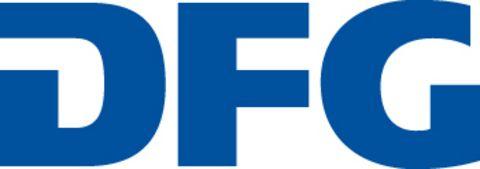DFG project: Founder-Inventors
Passau researchers investigate the secret of long-term successful founders

How do founder-inventors manage to keep their companies on a growth trajectory? A research team led by Prof. Dr. Carolin Häussler, Chair of Business Administration with a focus on Organization, Technology Management and Entrepreneurship at the University of Passau, searches for answers to this question in a project funded by the German Research Association (DFG).
According to previous research, founders have a special ability to develop novel products, technologies and services but may not be equipped with the best managerial skills particularly when a venture is on a growth trajectory. Prior research even suggests that professional managers should replace the founder-CEOs to accelerate growth.
A study by the research team suggest a different conclusion: Founders are crucial for the long-term success of their venture particularly when they continue being involved in research and development. As part of the DFG project "The originality of entrepreneurs along the life cycle of firms: Understanding the attributes of entrepreneurial decision making," the research team is now studying founder involvement in research and development (R&D) activities.
Inventive founders are more successful
The results of the investigations in a first phase of the DFG project indicate that founder-inventors support the absorption of new knowledge from R&D collaborations (Müller, Syme, & Häussler, 2020), as a member of inventor teams facilitate a higher degree of novelty creation (Figge, Häussler, & Müller, 2017), and increase the probability of their firm’s survival and growth if continuously involved in R&D. This effect is even increased by external venture capital investors, as they often bring new team members into the firm, who then take over the management of the firm, allowing the founder-inventors to focus on R&D (Häussler, Hennicke, & Müller, 2019).
"In the second phase of the project, we are now investigating why the founders' involvement in R&D is so difficult to replace," explains Prof. Dr. Carolin Häussler. The research team is looking at various factors. These include the technical expertise of the founders, their ownership share, their management responsibilities and their previous entrepreneurial experience.
In addition, the research team is analyzing how the interplay of founder-specific and structural aspects - such as the distribution of ownership or management responsibility at the firm level, as well as change in the top management team - influences the firm's ability to innovate. "After all, entrepreneurial decisions are rarely made by one person, but rather by a team of founders. How ownership shares are divided within the founding team plays a significant role for decision-making," says Laura Bregenzer research associate and doctoral student of Prof. Dr. Häussler.
Corporate data in combination with patent data
The researchers are working with a representative sample of thousands of German start-ups founded since 1990this dataset provides information on the constitution of the firm's top management as well as on KPIs such as sales turnover. They extent this dataset with detailed information on patent activity of firms and their inventors.. Based on the patent data, the researchers can also determine whether the founders themselves are involved in the inventions.
Participants and funding
Prof. Dr. Carolin Häussler, Chair of Organization, Technology Management and Entrepreneurship, is leading the project at the University of Passau. Cooperation partner is Prof. Dr. Elisabeth Müller, Professor for Innovation and Entrepreneurship at the IESEG School of Management in Lille and Paris. Laura Bregenzer is research assistant and doctoral student of Prof. Dr. Häussler.
The German Research Foundation (DFG) is funding the project in the second phase until June 2024 (HA 5363/2-2).
| Principal Investigator(s) at the University | Prof. Dr. Carolin Häussler (Lehrstuhl für Betriebswirtschaftslehre mit Schwerpunkt Organisation, Technologiemanagement und Entrepreneurship) |
|---|---|
| Project period | 01.04.2018 - 30.06.2024 |
| Source of funding |  DFG - Deutsche Forschungsgemeinschaft > DFG - Sachbeihilfe |
| Projektnummer | HA 5363/2-2 |
| Themenfelder | Wirtschaftswissenschaften, Wirtschaftswissenschaften allgemein, Wirtschaftswissenschaften |
| Förderhinweis | The German Research Foundation (DFG) is funding the project in the second phase until June 2024 (HA 5363/2-2). |

